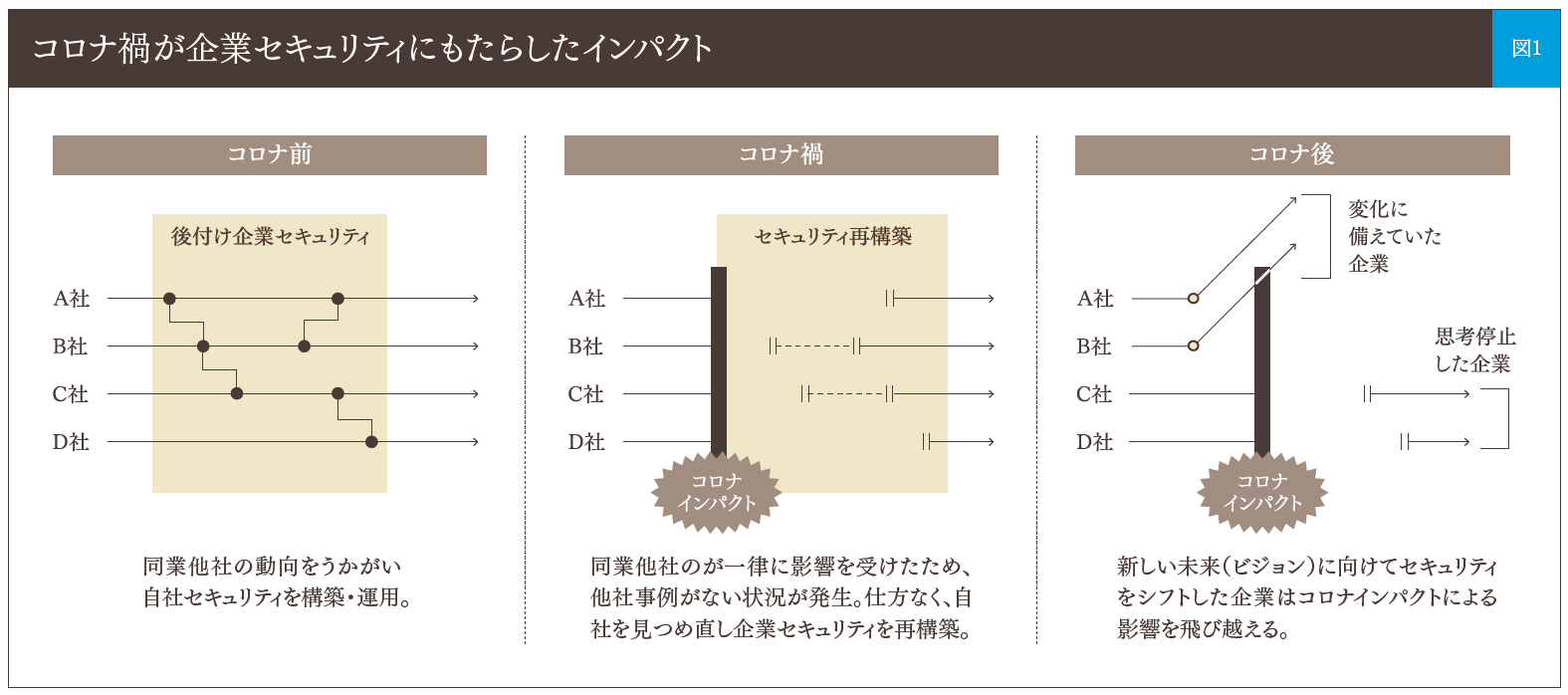Shifting Corporate Security

The Impact of the COVID-19 Pandemic on Companies
In response to the spread of the COVID-19 virus, the government issued a state of emergency declaration in April 2020. Never before in the postwar period had the entire country of Japan been so disrupted by such a major disaster.
Corporate activities were similarly affected. Instead of going to the office five days a week and working from 9 to 5, we have shifted to staggered work hours or teleworking from multiple locations, including homes or satellite offices. Meetings, too, have transformed from face-to-face gatherings to conference calls and online meetings.
With the shift to teleworking, including working from home, IT has become more important than ever. While it has always been impossible to carry out work without IT, in the past it was sufficient to have a well-equipped office environment with necessary facilities, equipment, and software. Now that people cannot gather, each employee requires an IT setup that meets a certain level of security. Some companies provided employees with smartphones, laptops, and WiFi routers that support high-speed, secure data transmission and reception.
New challenges have also emerged. For example, purchasing hundreds of new accounts for employees to use cloud services led to significantly higher costs. Additionally, companies that had set up remote connection environments such as VPN (Virtual Private Network) and VDI (Virtual Desktop Infrastructure) faced issues where too many employees attempting to access the systems simultaneously led to performance bottlenecks, necessitating system upgrades.
Security protocols, previously designed with in-office work in mind, had to undergo significant revisions to accommodate remote work. With the rise of telework and online meetings, new guidelines and rules had to be clearly communicated and strictly enforced. This included rules for online meeting backgrounds, as well as when to turn on or off screens and microphones. However, many companies still struggle to enforce these rules effectively.
Furthermore, companies that had not yet adopted telework were forced to make temporary concessions, such as allowing the use of personal devices (smartphones, PCs), home internet connections, and public wireless LANs, as well as personal accounts on online services like conference systems and SNS.
Some large companies continue to prohibit the use of home internet connections and public wireless LANs, even during the COVID-19 pandemic, partly due to security concerns. Additionally, the decision of whether these costs should be borne by the company or by individual employees remains unresolved in many cases.
The use of personal SNS accounts remains a significant concern. While there are advantages, such as increased productivity using familiar tools and no additional costs, issues arise regarding whether statements made on these platforms are personal opinions or company positions. There are also concerns about what happens if the account is hijacked or if an employee leaves the company. Many companies are likely temporarily permitting the use of these accounts as an interim measure.

To read the full text, please download the PDF.
DownloadPDF(1.75 MB)